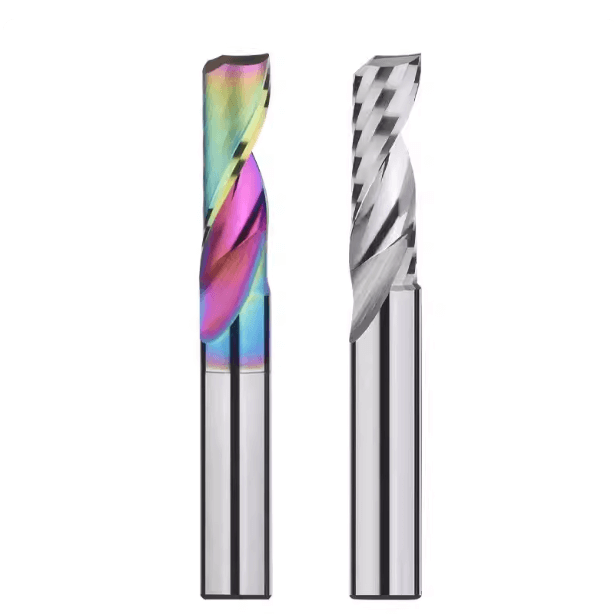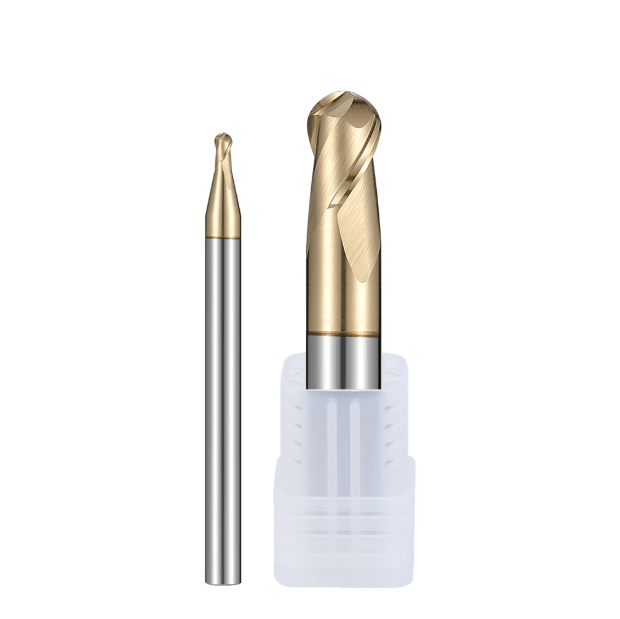In CNC roughing processes, standard rough end mills are widely used, but when faced with complex geometries, high-hardness materials, or extreme efficiency requirements, standard tools often fall short. Customized roughing milling cutters become a key solution to enhance machining quality and efficiency. By tailoring tooth geometry, blade length ratio, coating combinations, and carbide substrates to specific conditions, customized tools significantly improve cutting stability, extend tool life, and reduce the risk of tool failure.
Whether roughing mold steel, high-temperature alloy structural parts, or removing large stock from aerospace and automotive components, a well-designed carbide roughing end mill achieves excellent chip control and thermal stability under high cutting loads. For industrial customers requiring batch consistency and reliable delivery, partnering with an experienced roughing milling cutter factory ensures technical alignment from design to finished product, backed by trial cutting validation and ongoing supply assurance.
This article systematically covers when to choose customized end mills roughing, the advantages they offer over standard tools, and how to collaborate effectively with carbide roughing milling cutter manufacturers to boost your machining performance.
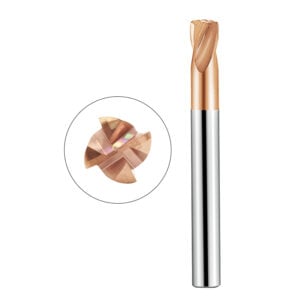
Why Can’t Standard Roughing Milling Cutters Meet All Processing Needs?
Though standard rough end mill cutters cover many common applications, they often struggle with complex workpiece geometries, demanding materials, and diverse production goals. Fixed tooth geometries, blade counts, and generic coatings limit their ability to deliver refined, efficient, and stable roughing. Understanding these limitations is key to deciding when to opt for customized roughing end mills.
Special Requirements for Complex Workpiece Geometries
Complex parts frequently feature multiple curved surfaces, deep cavities, and narrow slots that challenge tool size, blade length, and shape. Standard roughers, designed for general use, may lack rigidity or clearance in these scenarios. For example, long tools for deep cavity molds risk excessive vibration, compromising accuracy and tool life. Customized carbide roughing end mill cutters can adjust blade length ratios and tooth designs to better fit such contours, enabling stable, efficient material removal.
Challenges of High-Hardness and Difficult-to-Machine Materials
High-hardness alloys and titanium alloys are increasingly common but difficult to machine. Standard roughers typically use general carbide substrates and basic coatings, which may wear rapidly under high heat and cutting forces, risking premature tool failure. Customized tools use advanced substrates and specialized coatings tailored to these materials, enhancing wear resistance, thermal stability, and process reliability.
Balancing Processing Efficiency and Cost
Maximizing material removal rates while maintaining part quality is a core concern for CNC engineers and managers. Although standard roughers have lower upfront costs, frequent tool changes and rework may raise total expenses. Customized roughing end mills optimize tool geometry and cutting parameters to extend tool life and boost efficiency. While their unit price is higher, they reduce overall production costs and improve throughput in the long run.
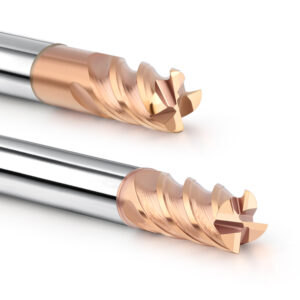
What Are the Advantages of Customized Roughing Milling Cutters?
Custom rough end mills are designed specifically for your application, offering superior cutting efficiency, longer life, and enhanced stability compared to standard tools. From tooth geometry and groove design to substrate and coating selection, customized cutters are fine-tuned for your working conditions. This makes them ideal for high-demand sectors such as aerospace, high-hardness alloys, and complex mold manufacturing.
Exclusive Tooth Designs for Better Cutting and Chip Control
Roughing’s primary goal is fast material removal, and tooth geometry drives cutting efficiency and chip breaking. Standard cutters typically feature fixed tooth shapes like straight or wavy teeth. Customized cutters can incorporate unequal teeth, sawtooth profiles, or other specialized geometries, reducing cutting forces, vibration, and improving chip evacuation — especially important for tough materials or heavy roughing allowances. Optimized tooth design increases speed and machining stability.
Customized Groove Types and Edge Lengths to Match Workpiece Needs
For deep cavities, narrow slots, or special contours, standard cutters often fail to balance size and rigidity. Customized carbide roughers can vary overall length, cutting edge length, neck diameter, and chip groove shape to avoid interference, maintain strength, and improve chip removal. For example, extended blade lengths reduce tool changes; narrow necks minimize collisions; optimized grooves prevent chip clogging, enhancing roughing safety and consistency.
Selecting the Right Substrate Material and Coating
Tool substrate and coating directly affect wear resistance, thermal stability, and tool life. Standard roughers use general-purpose carbide and basic coatings. Customized cutters select substrates and advanced coatings (e.g., AlCrN, TiAlN) based on material properties. For high-temperature alloys, AlCrN coatings improve oxidation resistance and hardness; TiAlN coatings reduce built-up edges on sticky materials. This tailored material selection ensures stable, high-performance cutting under extreme conditions.

Typical Applications for Customized Roughing Milling Cutters
With increasing diversity in materials and part geometries, a one-size-fits-all approach no longer works. Especially for large stock removal of high-strength and high-hardness parts, tools face challenges in strength, heat dissipation, chip evacuation, and efficiency. Customized roughers precisely address these needs to improve productivity and tool life.
Roughing Mold Steel
Mold steels (e.g., H13, SKD11, 1.2344) are hard and thermally resistant, causing wear and chip adhesion with standard cutters. Customized roughers use wear-resistant substrates, unequal helix angles, and segmented teeth to boost stability and chip control. Optimized grooves improve chip evacuation, extending tool life and increasing roughing efficiency.
Roughing High-Temperature Aerospace Alloys
Aerospace alloys like Inconel and Hastelloy are notoriously difficult. They generate high cutting forces and heat, accelerating tool wear. Customized carbide roughers employ micro-grain substrates, special coatings, and reinforced core diameters to enhance rigidity and heat resistance, controlling wear and chipping during heavy roughing.
Large Structural Part Stock Removal
Large automotive chassis, machinery, and energy equipment parts require efficient heavy stock removal over long tool paths. Customized roughers optimize blade length, flute count, and diameter for maximum cutting efficiency, while enlarged chip grooves and cooling channels prevent chip clogging and overheating, ensuring consistent, safe batch processing.

How to Partner with a Reliable Roughing Milling Cutter Supplier or Factory
Choosing a supplier with strong experience, delivery capacity, and quality control is critical for successful custom tooling. A reliable partner provides tailored solutions, consistent quality, and steady supply — all essential for demanding, high-efficiency roughing operations.
Select Manufacturers with Proven Customization Capabilities
Top suppliers have full production capabilities: carbide selection, precision grinding, coating, and testing. Their ability to independently design and produce various tooth geometries and parameters is vital. Prioritize factories with R&D experience and a track record of customized solutions for non-standard parts or materials.
Ensure Comprehensive Support from Design to Trial Cutting
Trustworthy suppliers offer full-cycle services, including CAD drawing reviews, tool selection guidance, cutting parameter recommendations, and trial cutting reports. This reduces trial-and-error costs and improves initial sample success and subsequent production stability.
Verify Batch Delivery and Quality Control Systems
Consistent quality and on-time delivery are crucial for mass production. Reliable factories implement standardized quality management — raw material batch control, edge inspection, coating uniformity, etc. Production capacity and inventory management affect delivery reliability. ISO certification, factory audits, and after-sales support are important indicators of a dependable supplier.

FAQs on Customized Roughing Milling Cutter Design
To assist companies in smoother selection, communication, and procurement, here are answers to common questions.
How Should I Propose Technical Requirements for Customized Milling Cutters?
Provide as many details as possible, including:
-
Workpiece material (e.g., P20, S136, titanium alloy, Inconel)
-
Machining method (side milling, slot milling, deep cavity)
-
Tool dimensions (diameter, blade length, overall length, shank diameter)
-
Preferred blade count and tooth shape (straight, wavy, unequal)
-
Spindle speed and machine rigidity
-
Coating preferences (AlCrN, TiAlN, etc.)
Detailed info helps engineers optimize tool design for efficiency and longevity. Utilize supplier CAD and parameter consultation services if available.
How Long Does Custom Tool Delivery Usually Take?
Delivery depends on customization complexity. Simple changes (blade length, diameter, coating) typically take 7–12 working days. New tooth shapes or special grooves may extend to 2–3 weeks. Confirm availability of “proofing + mass production” batch delivery to streamline projects. Some factories stock blanks and offer expedited production.
Is Customization Much More Expensive Than Standard Tools?
Custom roughers cost somewhat more upfront, depending on geometry redesign, coating type, batch size, and technical services (trial cutting, CAM optimization). However, improved tool life and efficiency often lower total processing costs, making customized tools cost-effective, especially for mold and structural parts rough milling.
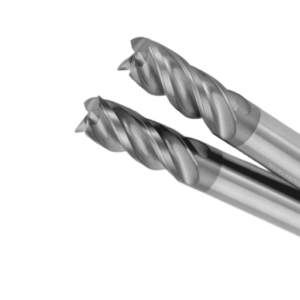
When Standard Milling Cutters Are Not Enough, Customization Is the Real Efficiency Weapon
In today’s manufacturing, parts demand higher strength, complexity, and efficiency, pushing standard tools beyond their limits. Especially for mold steel, high-temperature alloys, and large structural components, single-spec rough end mills cannot balance cutting efficiency, tool life, and stability.
Customized roughing mill cutters become essential tools to enhance competitiveness. From custom tooth designs and groove types to tailored coatings, they deliver significant performance improvements. Combined with choosing suppliers who guarantee quality and batch delivery, customized tooling ensures efficient, reliable production.
Manufacturing is not about copying universal templates, but mastering precision fit. When your demands exceed standard tools, customized roughers help reduce costs, boost throughput, and gain differentiation. Engage with capable carbide roughing milling cutter factories to develop exclusive tool solutions that accelerate and elevate your machining.





